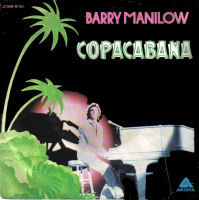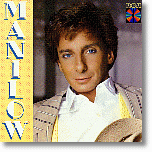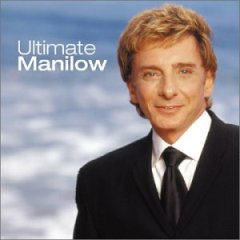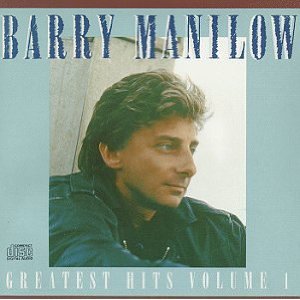
Barry Manilow is an American singer-songwriter, arranger, musician, producer and actor, with a career that has spanned more than 50 years. His hit recordings include "Could It Be Magic", "Mandy", "I Write the Songs", "Can't Smile Without You" and "Copacabana ".

"Copacabana", also known as "Copacabana ", is a song recorded by Barry Manilow. Written by Manilow, Jack Feldman, and Bruce Sussman, it was released in 1978 as the third and final single from Manilow's fifth studio album, Even Now (1978).

Barry Manilow is the debut album by Barry Manilow. It was released as Barry Manilow in 1973, then re-mixed and re-released as Barry Manilow I in 1975.

Barry Manilow II is the second studio album by Barry Manilow released in 1974. It included the mega hit song "Mandy", as well as "It's a Miracle"; the cut "Sandra" was later recorded by Dusty Springfield. First issued by Bell Records, it was reissued after the company was reorganized into Arista Records.

Greatest Hits Vol. II is the thirteenth album released by singer-songwriter Barry Manilow. In Britain, Manilow's first Greatest Hits album had been issued as Manilow Magic, thus this second volume was issued there as A Touch More Magic.

Manilow is the self-titled album released in 1985 by singer-songwriter Barry Manilow. The album had little impact on the charts. The album features 1980s style rock n' roll/ synthesizers. He was lured away from Arista Records, but as cited by Manilow in an interview, the executives who brought him over were no longer there when the album was released. This may have led to poor record sales, as well as the album sound being primarily a modern uptempo and synthesized release sharply different from Manilow's renowned piano ballads.

Barry Manilow is a self-titled album released by singer and songwriter Barry Manilow. The album was released in 1989, and reached Gold certification. This album also represented a hint of future album releases, many of the songs were not written/co-written by Manilow, which had until that point been rare. Manilow, known for being a composer, typically always stocked his albums with material he co-wrote with his lyricists. After the release of this album he embarked on introducing contemporary audiences to pop music of the 1930s through the late 1940s.

Live on Broadway is a live album by singer-songwriter Barry Manilow, released in 1990. The album was recorded at the Chicago Theatre in Chicago, Illinois, on December 2 and December 3, 1989.

Ultimate Manilow is a compilation of the greatest hits of Barry Manilow. Nearly every top 20 hit is included in this collection. This compilation is best known for setting the stage for a comeback for Manilow, as it debuted at No. 3 on the charts. While on a six-week tour to promote his latest album Here at the Mayflower, Manilow immediately extended it to a six-month tour. At the time Ultimate Manilow was released, no other compilations of Manilow's music were in print.

"Could It Be Magic" is a song with lyrics by Adrienne Anderson and music by Barry Manilow, based on Frédéric Chopin's Prelude in C minor, Opus 28, Number 20. Initially released in 1971 by Featherbed, produced and co-written by Tony Orlando, it was later re-recorded as a Barry Manilow solo track, given a first album and single release in 1973 on Bell Records and - after being remixed - an album and single re-release in 1975 on Arista Records. The 1975 re-release became one of Manilow's first hits. The song has been recorded by a number of other artists over the years, most successfully by Donna Summer in 1976 and by Take That in 1992.
Greatest Hits Volume Three may refer to:
Bell Records was an American record label founded in 1952 in New York City by Arthur Shimkin, the owner of the children's record label Golden Records, and initially a unit of Pocket Books, after the rights to the name were acquired from Benny Bell who used the Bell name to issue risque novelty records. A British branch was also active in the 1960s and 1970s. Bell Records was reorganized in November 1974, which was the birth of Arista Records.

The Complete Collection and Then Some... is a four-disc and one video greatest hits compilation by American pop singer Barry Manilow. It features 70 tracks including unreleased songs and five new recordings. It was certified RIAA gold. Originally released in 1992 with a VHS cassette, this box set was re-released on September 6, 2005, with a DVD replacing the tape.

Dionne is a 1979 album by the vocalist Dionne Warwick. It was recorded during the winter of 1978–79, and was released in the spring of 1979. The LP was originally issued as number AB-4230 in the Arista Catalog. The album stands as the biggest selling album of Warwick's career, being certified Platinum in the U.S. for sales in excess of 1 million copies.

The Greatest Songs of the Seventies is Barry Manilow's follow up to his previous album, The Greatest Songs of the Sixties. The album was released on September 18, 2007. Album producer Clive Davis said about Manilow: "No one can reinvent the great classics better than Barry Manilow. He breathes new life and vitality into these truly wonderful songs and they sound fresh and timeless. We continue on the mission to bring to a new generation the great songs of a different era." Davis has worked with Manilow since the 1970s and have been good friends. The album was released under Arista Records. It also features some of Manilow's hits in acoustic.

The Greatest Love Songs of All Time is a studio album by American singer Barry Manilow, released on 26 January 2010 through Arista. The release came not too long before the start of his new show at the Paris Las Vegas hotel.

Greatest Hits Volume I is a compilation album released by Barry Manilow in 1989 on Arista Records. It was the first of a three-album series released that year, along with Volume II and Volume III.

Greatest Hits Volume III is a compilation album released by Barry Manilow in 1989 on Arista Records. It was the third of a three-album series released that year, along with Volume I and Volume II.
Adrienne Anderson is an American songwriter, most notable for being the co-writer of "Could It Be Magic", among other Barry Manilow songs, as well as being the co-writer of signature songs for Dionne Warwick and Peter Allen.
Artie Kaplan is an American recording artist, songwriter and a session musician. He has also been a music contractor where he was hired to musicians for sessions. In the 1960s, he was casting musicians for sessions for Aldon Music. When musician Joe Delia was asked about the best advice he had ever had, he said it was from Kaplan, who said "Always show up on time and bring a pencil."
















